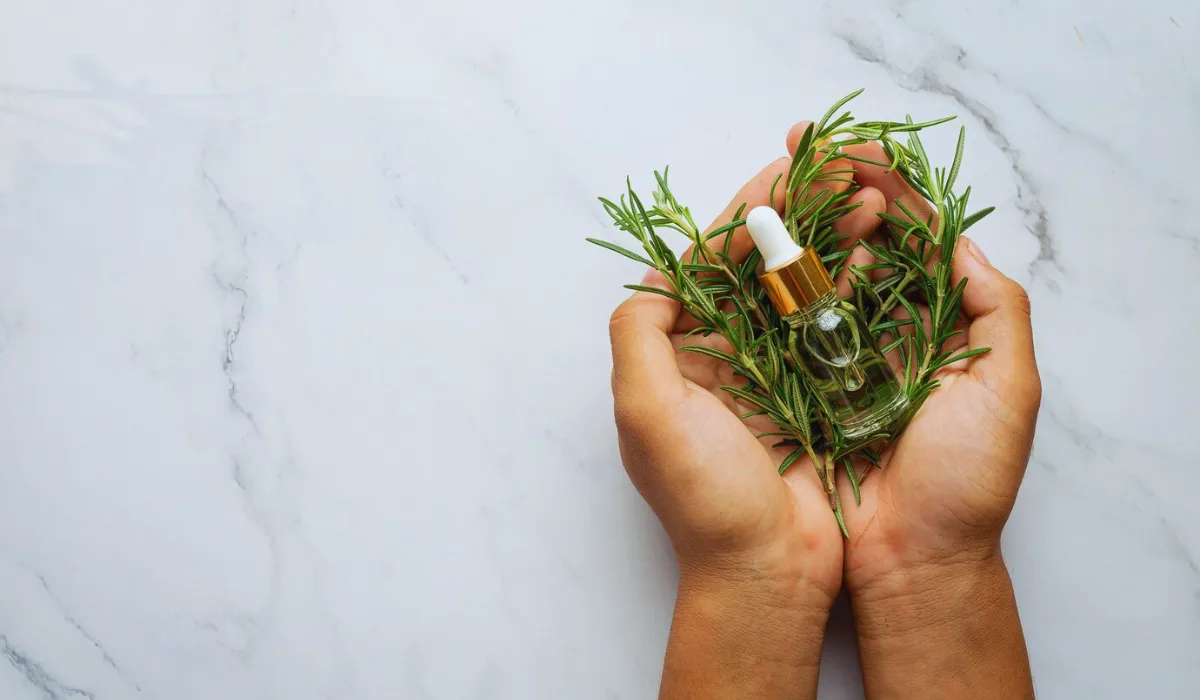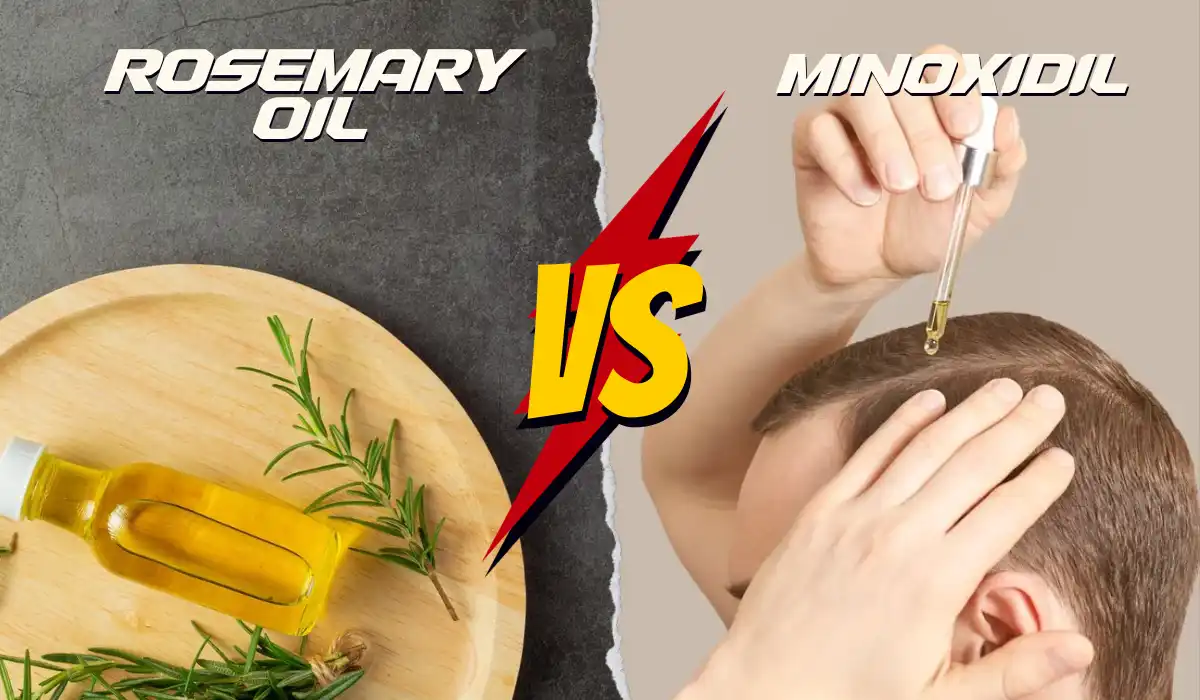There are many products and effective treatments that promote hair growth in a result-oriented manner, such as rosemary oil and topical Minoxidil. There is a constant debate between natural and synthetic hair growth treatments. This leads us to consider rosemary oil for hair growth, a natural remedy known for its nourishing properties, and Minoxidil, a scientifically proven hair loss treatment.
Rosemary oil
Rosemary oil is a natural and cost-effective solution for stimulating hair growth. This centuries-old essential oil is becoming more and more popular. Especially on social networks, and is touted for its miraculous properties that allow you to get a smoother and thicker mane. Rosemary oil is obtained from the leaves of flowers of Rosmarinus Officinalis, a plant native to the Mediterranean region. This essential oil is rich in nutrients and has anti-inflammatory, antioxidant, and antibacterial properties. It has long been used in traditional medicine to treat health problems such as muscle pain, indigestion, and infections.

What effect does rosemary oil have on hair?
Rosemary oil contains active ingredients that promote blood circulation to the scalps. By increasing blood flow to the hair follicles, Rosemary oil promotes hair growth. That is not all, rosemary oil also contains antioxidants that protect hair from free radical damage which can damage the cavities in which hair forms and slow hair growth.
How can I use rosemary oil for hair growth?
There are various ways to use rosemary oil for hair growth. Find a treatment that works for you and incorporate it into your daily routine. Mix a few drops of rosemary oil with coconut or jojoba oil and massage it into your scalp to help the treatment absorb better. Leave the treatment on for at least 30 minutes, then rinse with lukewarm water and wash your hair with a mild shampoo or conditioner to nourish your hair and stimulate growth. Every day, spray your scalp with water and a few drops of rosemary oil in a spray bottle.
Minoxidil for healthy oil
Minoxidil is a molecule that is included in the composition of some dermatological drugs for hair loss. When used on the skin, Minoxidil stimulates the growth of keratinocytes. Keratinocytes are the cells that make up the surface layers of the skin ( Epidermis) and 90% of the skin and therefore promote hair growth.
When should you take Minoxidil?
The main indication for Minoxidil is dermatology. This molecule is indicated for the treatment of androgenic alopecia. This hair loss ( the main cause of baldness in men) affects one-third of men by the age of 30 and half by the age of 50. It is characterized by hair loss on the forehead and crown of the head.
Note that androgenic alopecia can also occur in women, but less frequently.
Rosemary oil vs Minoxidil
Minoxidil oil and Rosemary are both widely used for their potential hair growth-promoting properties and offer different approaches to combating hair loss. Rosemary oil and minoxidil are both commonly used as topical treatments for hair and scalp conditions such as hair loss. Rosemary oil is a natural essential oil that can stimulate blood circulation and inhibit DHT when applied to the scalp, while Minoxidil is an over-the-counter medication that extends the anagen phase of hair follicles.
The difference
Rosemary oil and minoxidil are both used to prevent hair loss. But they are different. Known for its anti-oxidant and antibacterial properties. Rosemary oil can be applied directly to hair or combined with other oils to nourish hair follicles and fight scalp inflammation. It also helps prevent dry hair. Typically used for hair loss and androgenetic alopecia. Minoxidil is a synthetic drug that promotes hair growth by improving blood flow to the scalp and stimulating hair follicles. It often takes several months of use to see results. Their main difference is in their composition. Rosemary oil is a natural plant extract, while Minoxidil is a chemically formulated topical solution.
Both rosemary oil and minoxidil offer effective approaches to combat hair loss and promote hair growth. However, if you are wondering whether to choose between rosemary and minoxidil, it depends on your individual situation, the severity of your hair loss, and whether natural or synthetic treatments are available. Much depends on personal differences.

